When Atsu started to drift off she saw looming faces and felt cobwebby fingers brushing against her skin. She felt the wind of spirits rushing by and a roar like the crashing of waves on the beach. It was the cries and moans of all the babies who’d died here.
The Shogun’s Queen
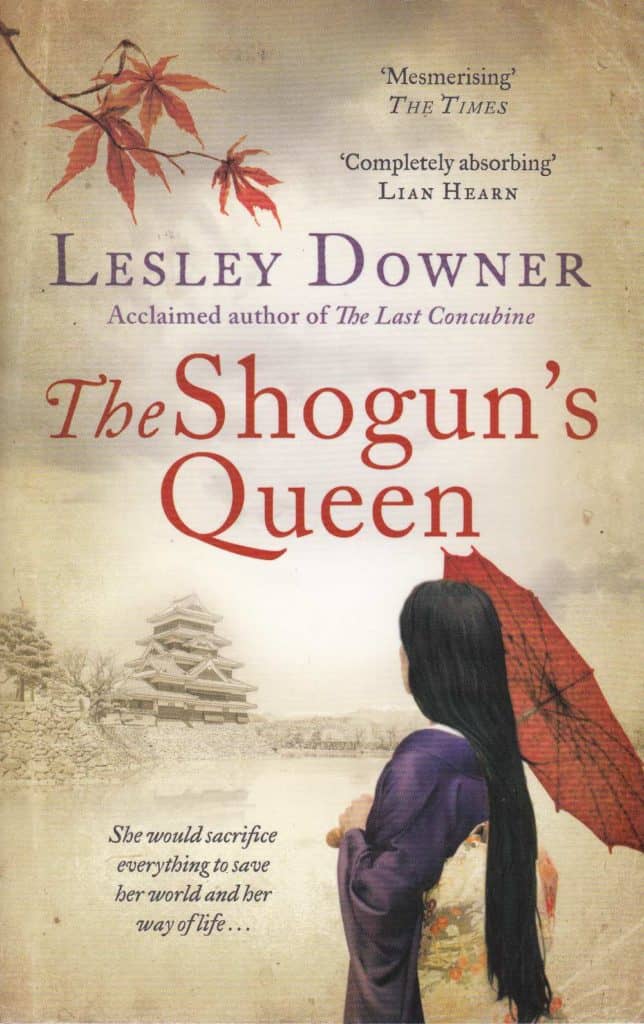
Amazon.co.uk
The Women’s Palace at Edo Castle, where most of my novel The Shogun’s Queen takes place, was full of ghosts. It was a kind of harem where three thousand women lived and only one man could enter – the shogun. The women hoped and prayed to be the mother of a child who would be the shogun’s heir, which would give them unimaginable wealth, power and influence. Amidst the endless jealousy and back biting, quite a few boy babies mysteriously died. Their spirits remained, haunting the long corridors of the castle. You could almost hear the ghostly whispers and feel the breeze of ghosts swirling around.
The Japan of my novel is a place where the natural and the supernatural regularly brush up against each other. People lived side by side with all sorts of beings, some of whom bothered them but most of whom just lived alongside them so that they came to take the supernatural for granted. There were many sorts of supernatural beings – ghosts of dead babies or of spurned women and one rather strange creature which looked like a furled paper umbrella and hopped around on its handle like a single leg, wearing a single clog and with one big eye. It was called an obaké and I once crossed paths with one. It happened when I was living in a haunted house in the small city of Kamakura…
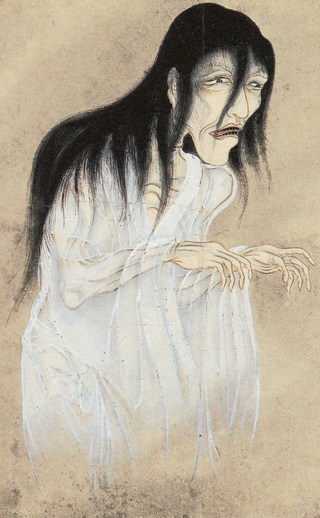
Ghost of spurned wife By Sawaki Suushi (佐脇嵩之, Japanese, *1707, †1772) (scanned from ISBN 4-3360-4187-3.) [Public domain], via Wikimedia Commons 
Lantern ghost – ghost of murdered wife – by Hokusai Katsushika Hokusai [Public domain], via Wikimedia Commons 
Ghost of murdered husband peeping over mosquito net at his unfaithful and murderous wife by Hokusai By Katsushika Hokusai (1760 – 1849) (hochgeladen von Duschan 1944) [Public domain], via Wikimedia Commons
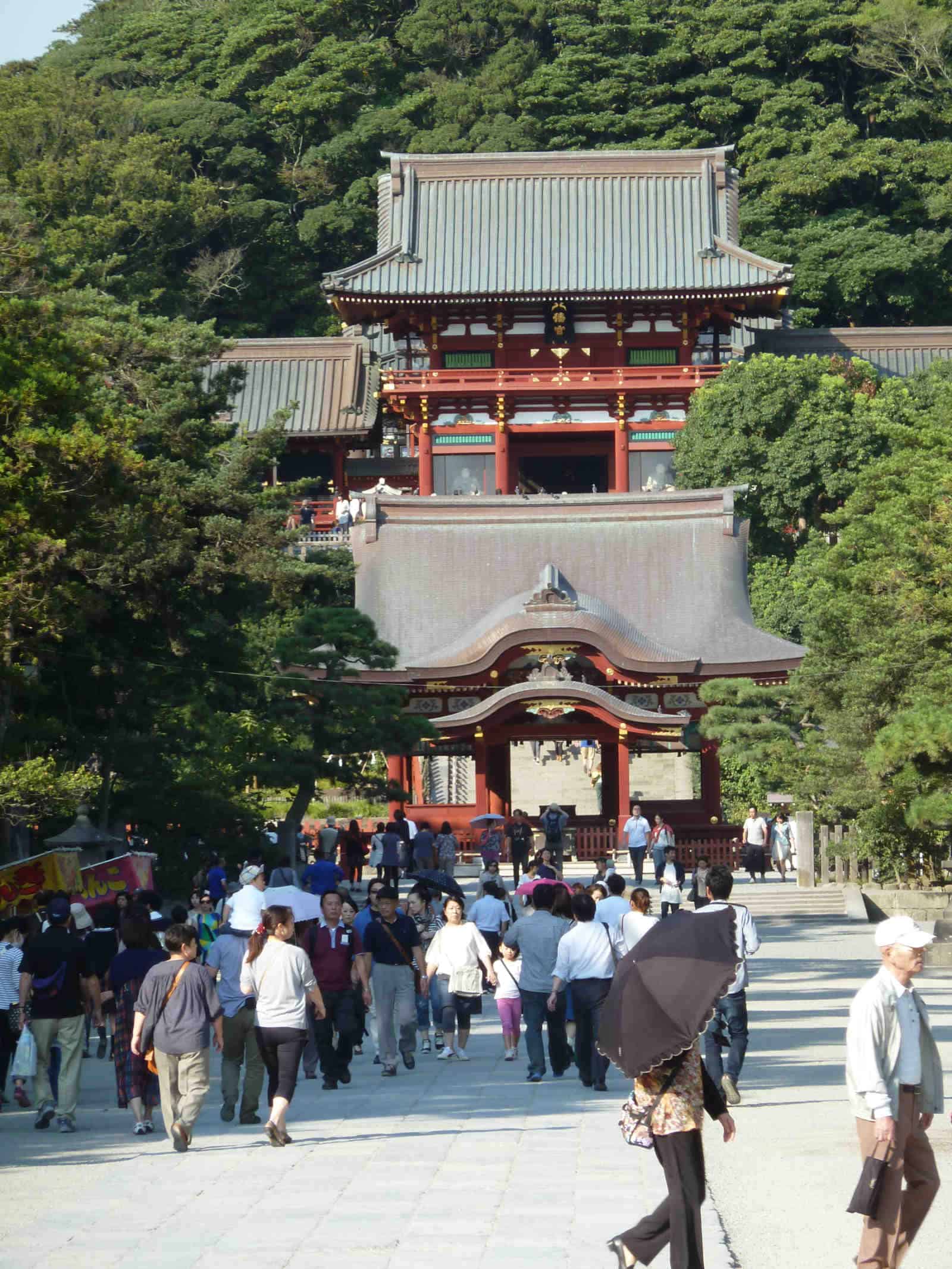
Photo by Lesley Downer
Kamakura is to Tokyo as Oxford is to London, exactly an hour away by train. Back in the twelfth century it was the old capital. It’s a beautiful place that rambles across wooded hills, full of mossy old temples and vermilion painted shrines. It’s also a cultural centre. Many poets and artists have made their homes there.
I lived there for three years. I’d already been in Japan for two years, spoke Japanese and was familiar with the culture, language and customs.
I lived in a haunted house. No Japanese would live there, which made it very cheap to rent. As is well known, Japanese ghosts have localised interests; they torment their own family members or whoever’s done them harm but they don’t trouble people at random. They don’t bother foreigners. In any case foreigners are so radically different that even the most ferocious of Japanese ghosts would probably be a little in awe of one.
My western friends and I had no fear of Japanese ghosts and lived happily in this large, rambling, rather shabby house.
It was actually a beautiful old house. There was a tea ceremony hut and a pond with carp in it and a very overgrown garden. I never found out who the landlord was or why he kept the house. Many old houses were being torn down and replaced by apartment blocks which could be rented out for far more. But for some reason this house remained. And the ghosts kept well away – or so we thought.
Everything was fine until the third summer. That year by chance everyone went away at the same time leaving me alone in the house. I had Japanese friends over to stay.
‘Lucky you,’ I said. ‘You can have a room each!’
‘No, thank you,’ they replied. ‘That would be too frightening.’
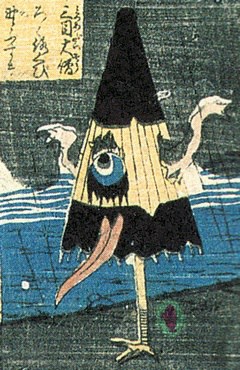
By Utagawa Yoshikazu [Public domain], via Wikimedia Commons
I’d almost forgotten that the house was supposed to be haunted, added to which Japanese almost never sleep alone. In fact they all slept together in one room with their mattresses side by side down the middle of the room, not off to one side as we would put them.
Then they all left. The night after was my first on my own in the house. I was lying in my futon bedding on the straw mats of my room when I heard a distinct banging. It came from the other end of the house, from the far end of a long dark corridor.
I listened hard. It sounded like boxes being thrown around. There was no one else in the house. I was definitely all alone. It couldn’t be a human being making all that noise. I guessed it must be an obaké – an umbrella ghost – but I certainly wasn’t going to go and investigate. I pulled my covers over my head, screwed my eyes tight shut and hoped for the best.
Thereafter I stayed well clear of the end of the corridor. And when I finally came back to Britain Japan was so alive in my mind that I had to start writing about it. The latest of my novels set in this strange yet familiar world is The Shogun’s Queen.
First posted on booksaremycwtches.wordpress.com
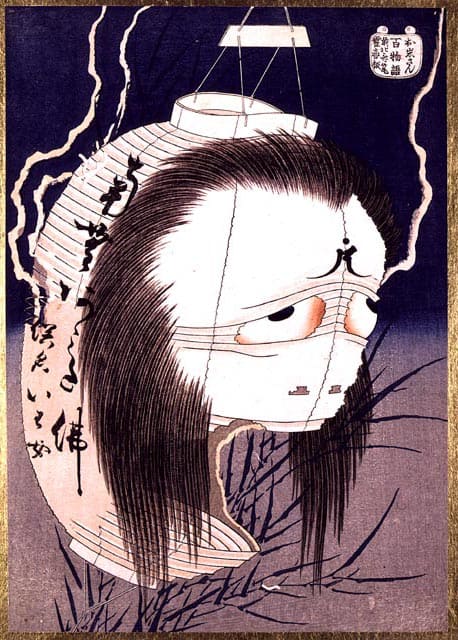
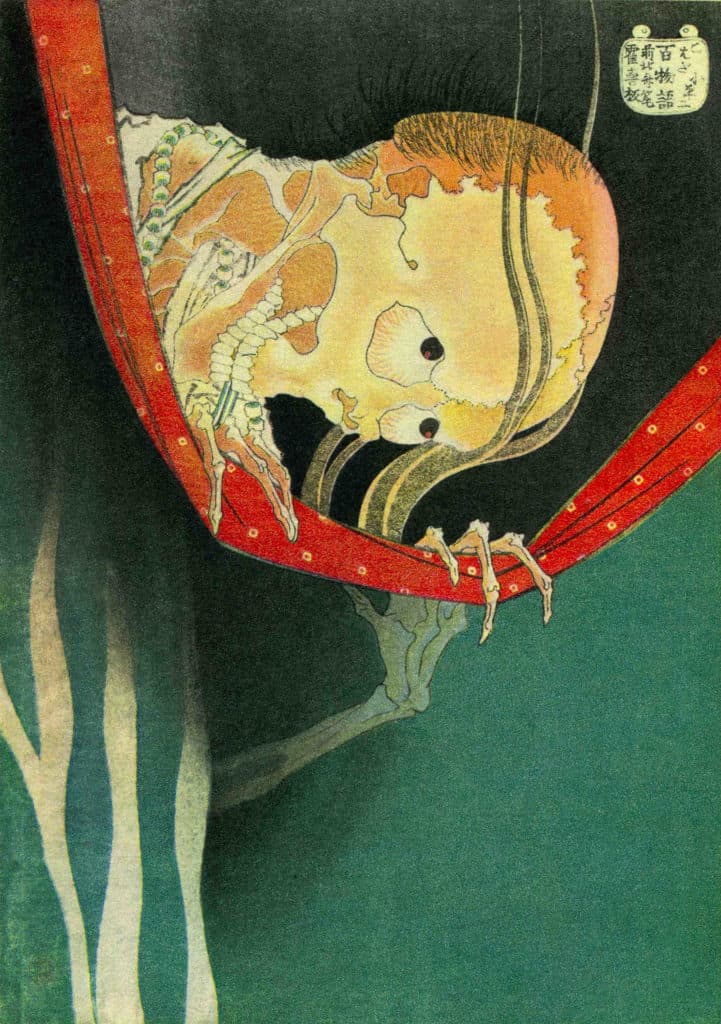
Amazing article, how very interesting and supernatural.
Obake is Japanese for ghost.
Kasa-obake is Japanese for umbrella-ghost. 🙂